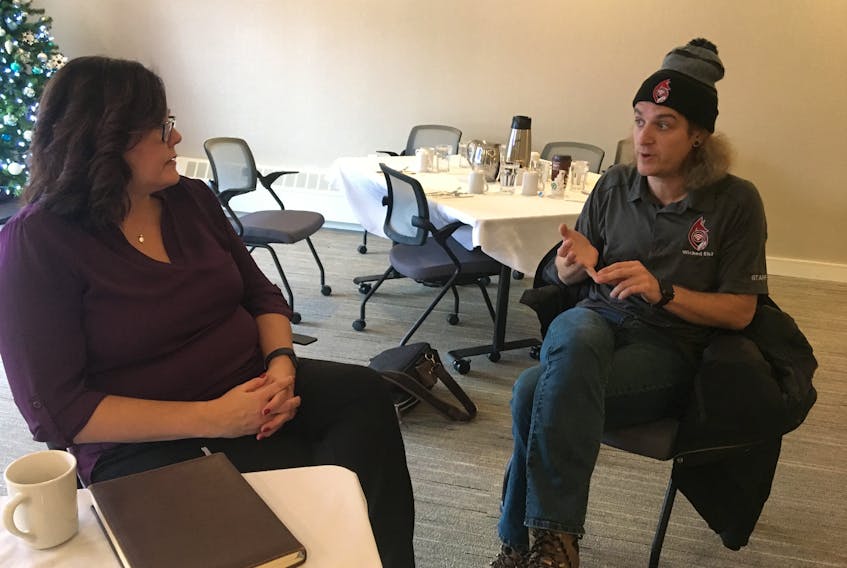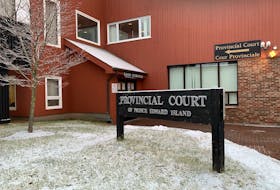WOODSTOCK, P.E.I. — The executive director of the West Prince Chamber of Commerce is proposing a collaborative approach to ensure the region gets good value in pursuit of better internet service.
“This is a great opportunity,” Tammy Rix said during the chamber’s recent November business breakfast mixer.
Preston Llewellyn, senior business development officer with Innovation P.E.I., and Kal Whitnell, executive director of Economic and Population Growth, were in attendance to explain the Prince Edward Island Broadband Fund (PEIBF).
“It’s really about making sure we have the infrastructure for now and in the future to meet the needs,” Whitnell said.
Rix suggested the region is under-serviced and said businesses and communities working together is the preferred approach for changing that.
The PEIBF will cover up to 50 per cent of eligible costs for improved services and businesses, communities and internet service providers can apply.
“We’ve gotten to a point now where internet is definitely a necessity and a requirement for businesses, communities, households,” Whitnell said, outlining the provincial government’s interest in having service upgraded.
He said as a standard, the CRTC wants at least 90 per cent of civic households in Canada to have access to download speeds of 50 mbps and upload speeds of 10 mbps, and he acknowledged there are rural areas in P.E.I. where those targets are not currently achievable.
Rix pointed to communities like Miminegash and West Cape, where there are service deficiencies.
“A lot of households are still struggling to have any type of reliable internet service, let alone wifi,” Rix said.
Even phone service along the coast is challenging, with some coastal customers needing to contact their provider monthly to have their phone bills adjusted due to signals bouncing off mainland communications towers.
Representatives from two internet service providers, Daniel Mullen from Utility Corridor Corporation and Rob Nelson from Wicked Eh! were in attendance to hear the pitch and to discuss the challenges.
Nelson said he’d like a clearer map of areas where other providers have received funding and are enhancing service.
He also suggested that having additional providers in an area adds competition and lowers prices for the customers.
Mullen agreed, but pointed to challenges in providing that competition. He told those in attendance that he's been trying since last year to get the necessary government permits so he can run underground cable from the highway to waiting customers in the Tyne Valley area.
Paul Strang, Western Region development officer, agreed with Rix’s suggestion of a collaborative approach.
“You start by taking action as a region,” he said, suggesting the chamber could invite internet service providers to meet with communities and businesses and explain what it is they can provide.
“It’s up to us to go out and dig; ask the questions, ask for a proposal, take a look at the options and make a decision.”
Whitnell said a business development officer with the province can help with the proposals. He added that communities can also make use of Gas Tax Fund revenue or other streams to help cover their 50 per cent of project costs.









